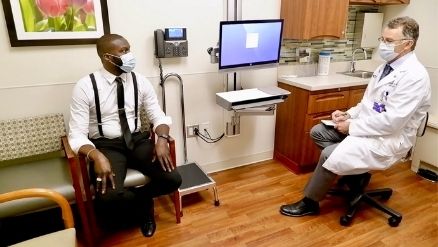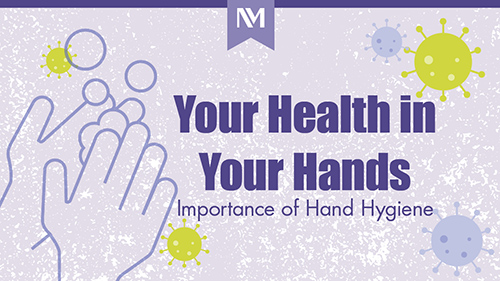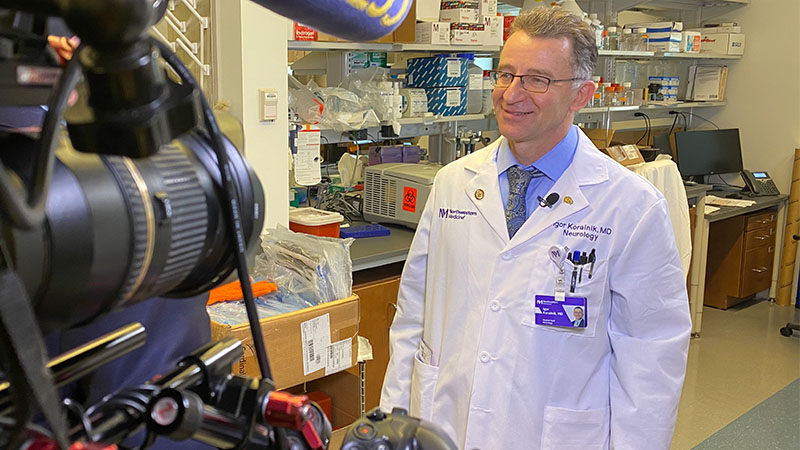Neuroinfectious Diseases Program at Northwestern Memorial Hospital
The Neuroinfectious Diseases Program at Northwestern Memorial Hospital provides comprehensive care for patients who have acute and chronic neurological infections, including those with neurological complications of COVID-19 (coronavirus).
Neuroinfectious diseases are infections of the nervous system. This includes the brain, spinal cord and nerves. Neuroinfectious diseases typically result when the body’s immune system is unable to fight off an invading pathogen or germ.
Neurological infections are caused by microorganisms, including bacteria, viruses, fungi and parasites. Many of these infections are life-threatening, and can cause severe and permanent neurological damage. For this reason, prompt medical attention by physicians who specialize in neuroinfectious diseases is important.
Viruses that infect the central nervous system (brain and spinal cord) include:
- Herpesviruses
- Arboviruses, which are carried by mosquitos and ticks
- Coxsackieviruses, including hand, foot and mouth disease
- Enteroviruses, which live in the digestive tract
- Coronaviruses, including SARS-CoV-2 (the virus that causes COVID-19), which are airborne and can be spread through coughing and sneezing
The Neuroinfectious Diseases Program at Northwestern Memorial Hospital is committed to providing high-quality, patient-centered care across the spectrum of neuroinfectious diseases, including care for those with neurological complications of COVID-19.
Meet The Team

The Neuroinfectious Disease Program at Northwestern Memorial Hospital is committed to providing high-quality, patient-centered care across the spectrum of neuroinfectious diseases.
Meet the Northwestern Medicine Neuroinfectious Diseases Program Team
About the Program
The Neuroinfectious Diseases Program at Northwestern Memorial Hospital provides comprehensive care for patients who have acute and chronic neurological infections.
Led by a team with specialized training in this field, the program gives patients access to the most sophisticated, research-based treatments available. Physicians in the program collaborate with the Northwestern Medicine Division of Infectious Disease.
Treatments for neuroinfectious diseases may include antiviral, antibacterial, antifungal, anti-parasitic, anti-inflammatory or anticonvulsive medicines.
Conditions Treated
- Encephalitis
- Infections related to travel
- Meningitis
- Myelitis
- Neuro Lyme disease
- Neurological complications of COVID-19
- Neurological complications of HIV/AIDS
- Neurosyphilis
- Polyradiculitis
- Progressive multifocal leukoencephalopathy
Specialized Care for Neurological Complications of COVID-19
COVID-19 (coronavirus) is a respiratory disease often marked by cough, fever and shortness of breath, but it has multiple possible symptoms, and the infection can look different in every patient. Evidence suggests that COVID-19 can affect the brain, nerves and muscles in some patients.
According to the Centers for Disease Control and Prevention (CDC), individuals 60 and older, and those with underlying medical conditions such as heart disease, lung disease and diabetes are at higher risk of developing more severe symptoms of COVID-19. Individuals with neurologic conditions such as multiple sclerosis (MS), Parkinson's disease, Alzheimer's disease, amyotrophic lateral sclerosis (ALS) and myasthenia gravis could also be at high risk.
Neurological Complications of COVID-19
The Neuro COVID-19 Clinic, part of the Comprehensive COVID-19 Center and Neuroinfectious Diseases Division at Northwestern Memorial Hospital, is led by Igor Koralnik, MD, chief of Neuroinfectious Diseases and Global Neurology at Northwestern Medicine. Through this clinic, we offer specialized care for patients experiencing neurological effects of long COVID. Symptoms may include:
- Headache
- Dizziness
- Difficulty concentrating
- Decreased smell or taste
- Weakness
- Muscle pain
In October 2020, Koralnik published a study in the Annals of Clinical and Translational Neurology, where he and his team examined neurologic manifestations in 509 consecutive patients admitted with confirmed COVID-19 within the Northwestern Medicine health system in the Chicago area. This was the largest study to date of neurological symptoms among coronavirus patients in an American Hospital system. The study found that nearly a third of hospitalized COVID-19 patients experienced encephalopathy; these patients had significantly worse medical outcomes and stayed three times as long in the hospital as patients without encephalopathy.
While there is still much to learn about COVID-19, our specialists at Northwestern Medicine have expertise in global health, epidemics and pandemics, making them uniquely prepared to provide excellent, comprehensive care for patients with neurological symptoms related to long COVID.
Northwestern Medicine offers care for neurological symptoms of long COVID downtown and in the western suburbs. To make an appointment:
Northwestern Memorial Hospital: 312.695.7950
Northwestern Medicine Oak Brook: 630.933.4056
Specialized Care for Neurological Complications of HIV/AIDS
Led by Igor Koralnik, MD, chief of Neuroinfectious Diseases and Global Neurology at Northwestern Medicine, the Neuroinfectious Disease Program at Northwestern Memorial Hospital offers specialized care for patients experiencing neurological complications of the human immunodeficiency virus (HIV) and AIDS.
Neurological complications of HIV infection consist of damage to the brain, spinal cord and nerves. This damage can affect your sensations, voluntary movements, coordination, balance, thinking processes and emotions. These complications occur in 30 to 50 percent of people with HIV/AIDS, and can present as the initial symptoms or develop at any time throughout the course of the disease.
Igor Koralnik, MD, chief of Neuroinfectious Diseases and Global Neurology at Northwestern Medicine, was among the first physicians to study the neurologic complications of HIV and AIDS and is a leading scientist in the field.
Global Neurology
Neurologic disorders are considered among the greatest threats to global health. According to the World Health Organization, neurologic disorders are responsible for approximately 12% of deaths worldwide. This is due, in part, to a lack of neurologic care in low- and medium-income countries.
The Neuroinfectious Diseases Program at Northwestern Memorial Hospital is invested in reducing the burden of neurologic diseases by training future global health leaders. Our purpose is to develop long-term, sustainable solutions to improve care for neurologic disorders worldwide.
Research
Faculty within the Division of Neuroinfectious Disease and Global Neurology at Northwestern University Feinberg School of Medicine, led by Igor Koralnik, MD, study the clinical, radiological, immunological, histological and molecular aspects of neuroinfectious diseases. See our Neuroinfectious Disease research page for more information.
Why Choose Northwestern Medicine
Northwestern Memorial Hospital is the only Illinois hospital on the national Honor Roll for 14 straight years.




